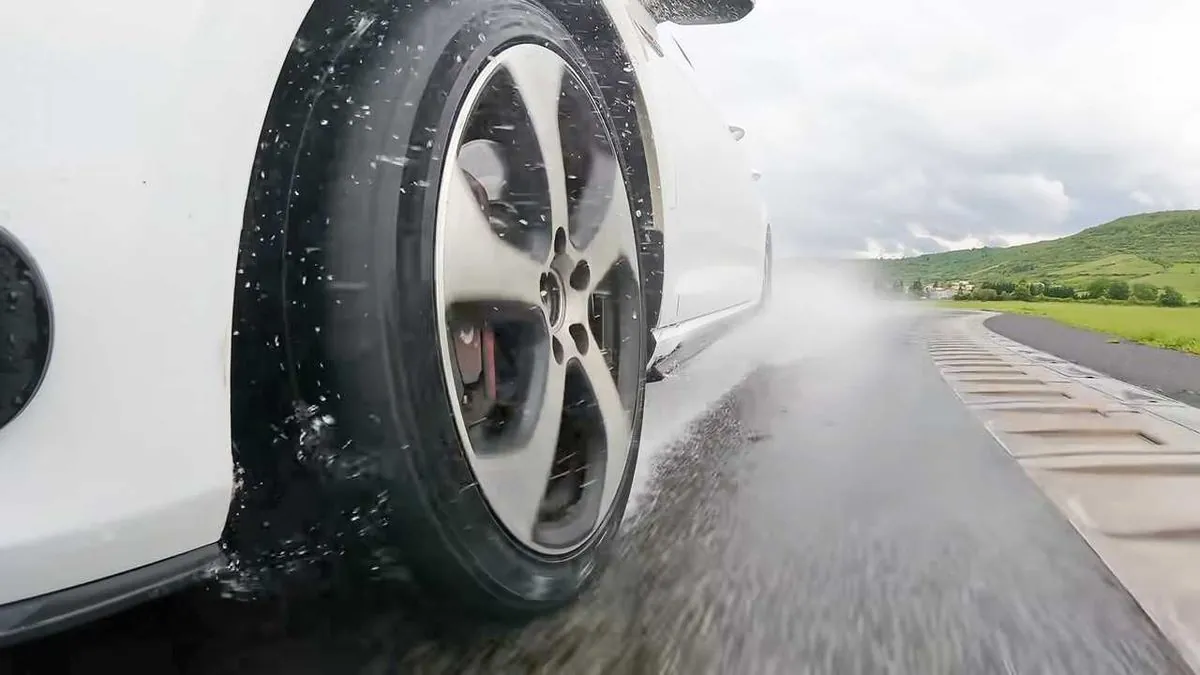Electric Vehicles: Heavier Weight Linked to Increased River Pollution
Environment Agency chairman highlights unexpected pollution from electric vehicles due to their weight. Government introduces new measures to combat water pollution, addressing various sources beyond water companies.

The chairman of the Environment Agency, Alan Lovell, has raised concerns about the unexpected environmental impact of electric vehicles (EVs) on UK waterways. Despite their reputation for being eco-friendly, EVs may contribute more to river pollution than conventional cars due to their increased weight.
Lovell explained that road run-off from tyres, which contains pollutants that wash off the road surface, significantly impacts water pollution in the UK. This issue is particularly pronounced with electric vehicles, which are generally heavier than their petrol or diesel counterparts. An Autotrader study conducted in 2023 found that the average electric car weighed 150kg more than a conventional vehicle.

The Environmental Audit Committee report reveals that run-off from urban areas and transport, including microplastics from tyres, accounts for nearly 20% of pollution in England's rivers. This statistic highlights the need for a comprehensive approach to addressing water pollution beyond focusing solely on water companies.
"People are worried about tyres now, and electric vehicles, ironically, are worse for that because of their weight. There's a lot of work to be done on that and we need to take appropriate action there."
To address this issue, Lovell suggests engaging with manufacturers to discuss the materials used in tyre production. This approach aims to tackle the root cause of the problem rather than just treating the symptoms.
However, experts argue that the overall environmental impact of EVs remains positive. Anna Krajinska from Transport and Environment points out that electric vehicles eliminate toxic tailpipe emissions such as nitrogen oxides, particles, and carbon monoxide. She also notes that while EVs may produce slightly more tyre pollution, this increase is offset by reduced pollution from exhaust and brakes.
The UK government has recently launched a plan to combat water company pollution in waterways. This initiative includes potential two-year prison sentences for water company executives who obstruct investigations into wrongdoing and a ban on bonuses for companies failing to meet environmental, consumer, and regulatory standards.
Steve Reed, the Environment Secretary, described the plan as the first step towards reforming the sector and ending pollution in England's rivers. However, Lovell emphasized that public perception often overlooks other significant sources of water pollution, such as agriculture and urban run-off.
To effectively address these issues, Lovell suggests that water bills may need to increase. He noted that the current average household charge of £1.30 per day is relatively low compared to the cost of bottled water.
As the UK moves towards its goal of banning new petrol and diesel car sales by 2030, addressing the environmental challenges posed by electric vehicles will be crucial. This situation underscores the complexity of environmental issues and the need for comprehensive, multi-faceted solutions to ensure a sustainable future.


































